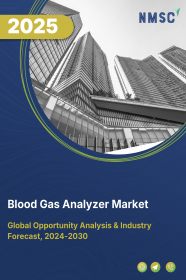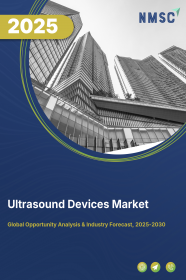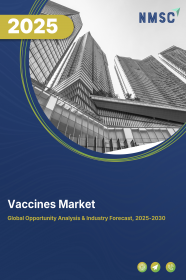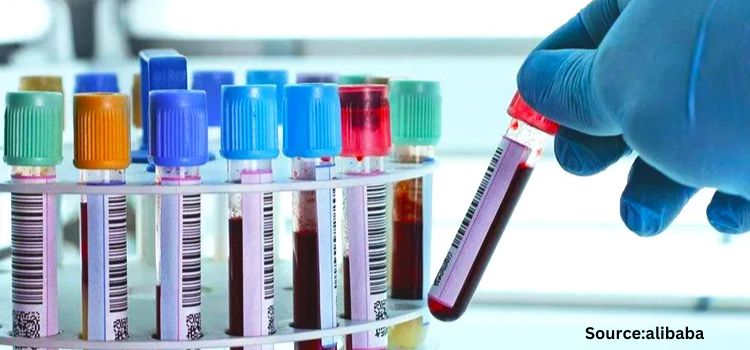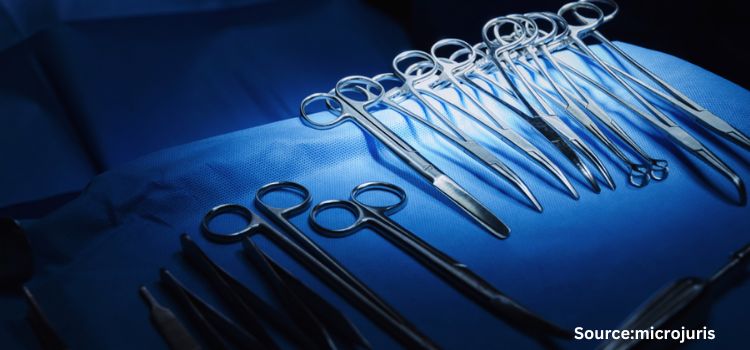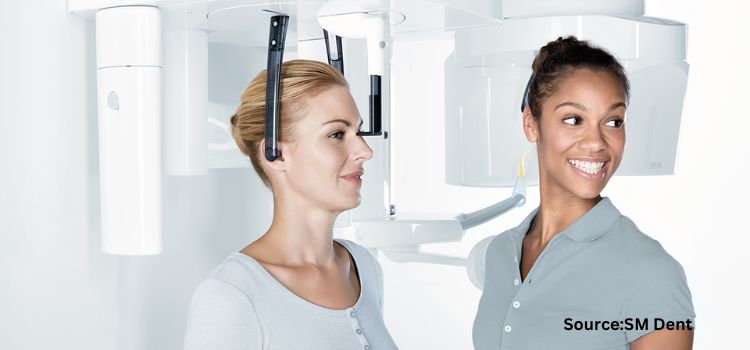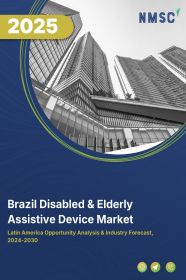
Brazil Disabled & Elderly Assistive Device Market by Type (Living Aids, Hearing Aids, Mobility Aids, Medical Furniture, and Bathroom Safety Equipment), and by End User (Hospitals, Elderly Nursing Homes, Home Care, and Other End Users) – Opportunity Analysis and Industry Forecast, 2024–2030
Industry: Healthcare | Publish Date: 02-Jan-2025 | No of Pages: 133 | No. of Tables: 99 | No. of Figures: 64 | Format: PDF | Report Code : HC1082
Market Definition
The Brazil Disabled & Elderly Assistive Device Market size was valued at USD 725.94 million in 2023, and is predicted to reach USD 1010.90 million by 2030, with a CAGR of 4.72% from 2024 to 2030. The assistive device industry plays a crucial role in enhancing the lives of individuals with disabilities and older adults by providing them with specialized tools and systems that foster independence and fulfillment. This industry encompasses a diverse spectrum of devices and software solutions meticulously designed to address physical, sensory, cognitive, and developmental limitations.
Operating at the intersection of healthcare, technology, and accessibility, it gives rise to groundbreaking solutions such as mobility aids, communication devices, and home automation systems. Driven by an aging population, rapid technological advancements, and evolving regulatory landscapes, the assistive device industry prioritizes inclusivity and continuously adapts to meet the ever-changing needs of its diverse user base.
Growing Adoption of Assistive Devices Due to The Impact of Awareness Among the Elderly Citizens in Brazil
The awareness and education surrounding assistive devices have significantly contributed to their increased adoption. As healthcare professionals gain a deeper understanding of the diverse range of assistive technologies available, they can better inform patients and incorporate these solutions into comprehensive care plans.
Public awareness campaigns further contribute to a societal shift, fostering inclusivity and understanding of the challenges faced by these populations. This collective awareness not only promotes a positive attitude toward the use of assistive devices but also drives a growing demand for innovative solutions that improve the overall quality of life for individuals with disabilities and the elderly.
The Rise of Customization and Personalization of Assistive Device in Brazil
The growing demand for customized and personalized assistive devices in the Disabled and Elderly Assistive Device Market reflects a shift towards acknowledging and catering to the unique and diverse needs of users. Recognizing that disabilities and the challenges of aging vary significantly, this trend promotes the development of assistive devices that can be tailored to individual requirements.
Beyond functional considerations, customization ensures comfort and usability, with adjustable features enhancing the overall user experience. Personalized solutions not only improve adherence to prescribed routines but also integrate technology in a way that aligns with individual preferences.
High Cost and Affordability of Assistive Devices Hinders the Market Growth in Brazil
The prohibitive cost of assistive technologies often excludes many individuals, particularly those with limited financial means in developing and underdeveloped nations. This lack of accessibility marks a significant barrier for a substantial portion of the population, hindering their ability to avail the benefits of these transformative tools. Furthermore, a lack of knowledge about the availability and advantages of assistive technologies among individuals, caregivers, and even healthcare professionals contribute to their underutilization.
Integration of Future Technologies such as AI and ML for the Assistive Device Industry Makes a Significant Opportunity Growth in Brazil
Assistive technology is transforming, becoming more personalized, accessible, and productive. This is due in large part to advancements in artificial intelligence (AI) and machine learning (ML), which are enabling assistive devices to be tailored to individual needs and adapt to changing conditions. The Internet of Things (IoT) and smart home systems are also empowering users to control their environments more independently than before.
Wearable devices and sensors monitor health metrics in real-time, providing valuable insights for self-care and overall well-being. Robotics-powered mobility aids and exoskeletons are augmenting physical capabilities, while augmented reality (AR) and virtual reality (VR) technologies are revolutionizing training and rehabilitation programs. These groundbreaking innovations are reshaping the assistive technology industry, expanding the range and efficacy of solutions while making them more accessible to those who need them.
Competitive Landscape
Various market players operating in the Brazil disabled & elderly assistive device market include Invacare Corporation, Sunrise Medical LLC, Bausch & Lomb, Inc., Permobil AB, Siemens Healthcare, Freedom Scientific, Inc., William Demant Holding A/S, Starkey Hearing Technologies, GN ReSound Group, Ai Squared, Blue Chip Medical Products, Inc., MED-EL, Liberator Ltd., Drive Medical Design and Manufacturing, Exact Dynamics B.V., and others.
Brazil Disabled & Elderly Assistive Device Key Market Segments
By Type
-
Living Aids
-
Hearing Aids
-
Behind-the-ear Aids (BTE)
-
Receiver-in-the-Ear Aids (RITE)
-
In-the-Ear Aids (ITE)
-
Bone Anchored Hearing Aids (BAHA)
-
Canal Hearing Aids
-
Cochlear Implants
-
Reading and Vision Aids
-
Braille Translators
-
Video Magnifiers
-
Reading Machines
-
Others
-
-
Mobility Aids
-
Walkers & Rollators
-
Canes & Walking Sticks
-
Crutches
-
Transfer Lifts or Patient Mechanical Lift Handling
-
Door Openers
-
Others
-
-
Medical Furniture
-
Medical Beds
-
Door Openers
-
Medical Furniture Accessories
-
Riser Reclining Chairs
-
Others
-
-
Bathroom Safety Equipment
-
Shower Chairs
-
Commodes
-
Ostomy Products
-
Bars, Grips, & Rails
-
By End User
-
Hospitals
-
Elderly Nursing Homes
-
Home Care
-
Other End Users
REPORT SCOPE AND SEGMENTATION:
|
Parameters |
Details |
|
Market Size in 2023 |
USD 725.94 Million |
|
Revenue Forecast in 2030 |
USD 1010.90 Million |
|
Growth Rate |
CAGR of 4.72% from 2024 to 2030 |
|
Analysis Period |
2023–2030 |
|
Base Year Considered |
2023 |
|
Forecast Period |
2024–2030 |
|
Market Size Estimation |
Million (USD) |
|
Growth Factors |
Demographic Trends Driving the Disabled and Elderly Assistive Device Industry Healthcare Infrastructure's Role in Brazil's Assistive Device Industry |
|
Companies Profiled |
15 |
|
Market Share |
Available for 10 companies |
|
Customization Scope |
Free customization (equivalent up to 80 working hours of analysts) after purchase. Addition or alteration to country, regional, and segment scope. |
|
Pricing and Purchase Options |
Avail customized purchase options to meet your exact research needs. |
KEY PLAYERS
-
Invacare Corporation
-
Sunrise Medical LLC
-
Bausch & Lomb, Inc.
-
Permobil AB
-
Siemens Healthcare
-
Freedom Scientific, Inc.
-
William Demant Holding A/S
-
Starkey Hearing Technologies
-
GN ReSound Group
-
Ai Squared
-
Blue Chip Medical Products, Inc.
-
MED-EL
-
Liberator Ltd.
-
Drive Medical Design and Manufacturing
-
Exact Dynamics B.V.

















 Speak to Our Analyst
Speak to Our Analyst



